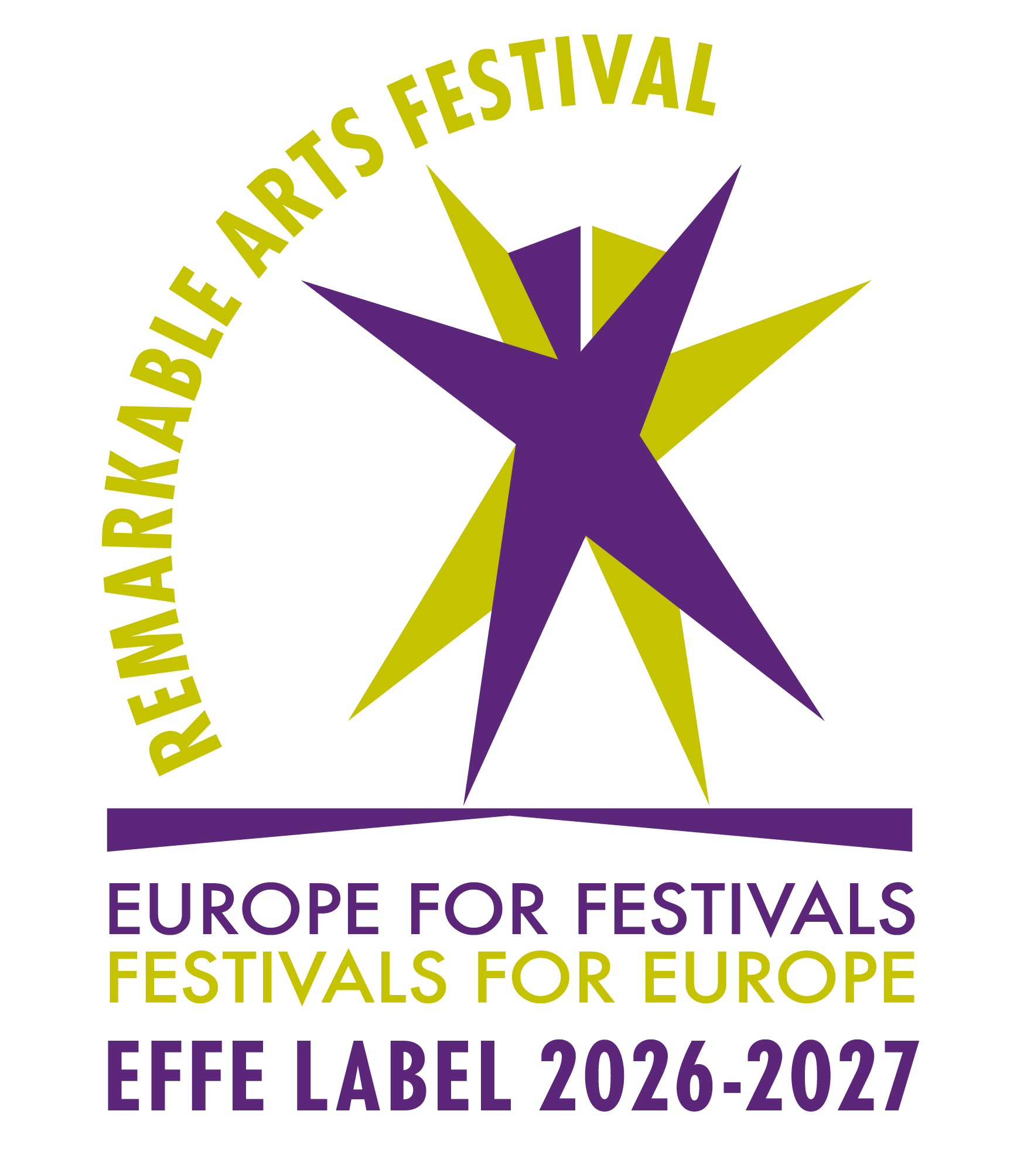Festival au Désert 2025
Parco delle Cascine, Florence
Festival au Désert Firenze is a well-established project of the Estate Fiorentina (Florentine Summer), and since 2010 it has brought to the city an extraordinary encounter between diverse cultures through music – a powerful invitation to knowledge and peace among peoples, with particular attention to minorities and nomadic creativity.
Among the featured artists of the upcoming edition, which will take place in Florence from July 23 to 25: THE ZAWOSE QUEENS from Tanzania, produced by Peter Gabriel’s prestigious Real World label, offering a mix of tradition and radiant feminine energy. The London-based band KEFAYA will perform with the extraordinary Hazara singer Elaha Soroor from Afghanistan. The group LOLO, composed of Malian ngoni player Mamah Diabate, kora player Jabel Kanuteh, drummer Marco Zanotti, and musician Stefano Pilia, will also be featured. – free admission
Premiering at the festival is the new production DONI DONI, which brings together kamalengoni player Kalifa Kone, guitarist Riccardo Onori, drummer Donald Renda, bassist Riccardo Di Vinci, with electronic textures by Ghiaccioli e Branzini and brass contributions (trumpet and trombone) by Canadian musician Charles Ferris. Opening the evening will be globetrotting singer and guitarist Sandro Joyeux, with his captivating blend of languages and rhythms that bridge Africa and the West through his unique style. – free admission
Among the projects that the Festival has supported since their inception and helped grow, ALMAR’À – the orchestra of Arab and Mediterranean women will lead an open workshop featuring some of its members: a table set with musical instruments and an invitation to take part in an informal afternoon of meeting and playing together with new musicians who wish to join and could potentially become part of the project. – for information and pre-selection, please send a motivational email to productionalmara@gmail.com including a short bio or résumé.
With the goal of connecting Africa, the Mediterranean, and Europe – starting from the collaboration between the Festival au Désert of Timbuktu (Mali) and the Fondazione Fabbrica Europa – the Festival au Désert Firenze finds its ideal setting in Parco delle Cascine, activating a vibrant cultural experience across the spaces of PARC and Ultravox on the Prato della Tinaia.
PROGRAMME
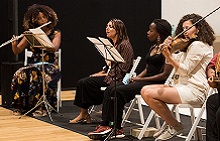 |
WED JULY 23 PARC | Florence ALMAR’À – l’Orchestra delle donne arabe e del Mediterraneo Laboratori · audizioni · workshop |
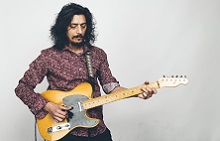 |
THU JULY 24 · from 9pm Ultravox – Prato della Tinaia | Florence SANDRO JOYEUX (France/Italy) Solo · guitar and vocals |
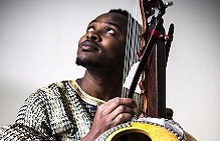 |
ON THE SAME EVENING DONI DONI (Italy-Mali) Kalifa Kone · Riccardo Onori · Riccardo Di Vinci · Donald Renda · Ghiaccioli e Branzini · Charles Ferris |
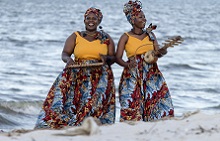 |
FRI JULY 25 · from 9pm Ultravox – Prato della Tinaia | Florence THE ZAWOSE QUEENS (Tanzania) Pendo Zawose · Leah Zawose |
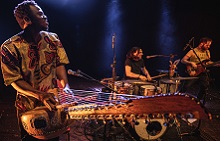 |
ON THE SAME EVENING LOLO (Italy-Mali-Gambia) Mamah Diabate · Jabel Kanuteh · Stefano Pilia · Marco Zanotti |
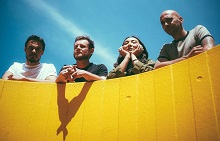 |
FOLLOWING KEFAYA & ELAHA SOROOR (Afghanistan/UK) Elaha Soroor · Al MacSween · Giuliano Modarelli · Joost Hendrickx |
ARTISTS
The Zawose Queens
Pendo and Leah Zawose are descendants of a renowned musical dynasty, comparable in prestige to the great musical families of Mali or the Kuti family of Nigeria. The patriarch of this Tanzanian dynasty was Hukwe Zawose, a celebrated singer and virtuoso of the ilimba, who was the first to bring Gogo-language music (from the Bantu family) from Tanzania to the world stage. With “Maisha”, the album produced by Peter Gabriel’s Real World Records, the women of this legendary family step into the spotlight for the first time as lead singers and performers. Encouraged by songwriting and music production workshops with UK producers Oli Barton-Wood (Jordan Rakei, Obongjayar, Nilufer Yanya) and Tom Excell (Nubiyan Twist, Onipa), the Zawose Queens began composing their own songs — and are now ready to share their voices with the world.
Kefaya & Elaha Soroor
This group blends Afghan folk traditions with electronics, jazz, and psychedelic rock to create a stunning fusion of cultures, voices, and rhythms. Described by The Guardian as “one of the most intriguing new bands of the year”, and stands as a symbol of unity and the beauty of diversity. Following the success of their debut album “Radio International”, in 2019 Kefaya collaborated with Elaha Soroor, a Hazara singer, to release “Songs of Our Mothers” on the Bella Union label. Critically acclaimed and winner of the Songlines Fusion Award, the album is a deeply evocative reimagining of traditional Afghan women’s songs, carrying forward their stories of strength and resistance. Formed by renowned London-based musicians and producers Al MacSween and Joost Hendrickx, along with Italian guitarist Giuliano Modarelli, Kefaya takes their name from the Arabic word “kefaya” (“enough”), a cry of protest that gained prominence during the Arab Spring uprisings.
Elaha Soroor was born in Iran into a religious Afghan family and returned to Afghanistan in 2005. Her political activism in support of women’s rights led to persecution beginning in 2007, when she and her family were forced to flee from Kunduz to Kabul. She rose to fame at just 21 years old, after participating in the popular music talent show Afghan Star in 2009. Her performances made her a symbol for a generation of youth and a progressive role model for Afghan girls.
Lolo
Mamah Diabate, a master of the traditional West African instrument ngoni, spent many years performing alongside Rokia Traoré, the queen of Malian music. He is now a central figure in a new project alongside Gambian kora player Jabel Kanuteh and two of the most respected sound alchemists on the European scene: bassist/guitarist Stefano Pilia and drummer Marco Zanotti. From 2012 to 2020, Stefano Pilia and Mamah Diabate collaborated closely with Rokia Traoré on the creation of her two most recent albums, “Beautiful Africa” (2013) and “Ne So” (2016), both released by Nonesuch Records, and took part in several of her tours across Europe, the United States, and Africa. The connection between Marco Zanotti and the Malian singer began with the single “Ka munu munu”, recorded by the Classica Afrobeat Orchestra, which Zanotti directs. For all these reasons, Lolo is a true bridge between cultures, a project that seeks to highlight the richness of knowledge and the depth of exchange between sound worlds that are distant yet profoundly complementary and emotionally attuned.
Kalifa Kone
Kalifa Kone, born in Bamako, is a drummer and multi-instrumentalist, particularly known for playing a variety of traditional instruments found in different forms across West Africa. These include the djembe, doun doun, bara, balafon, tama, calabash, and ngoni. From a young age, through attentive listening and observation of elders during ceremonies, he developed ancient performance techniques and began playing with several local groups in the Bamako area. In 2000, he joined the National Orchestra of Mali as a drummer. With the group Bitons of Segou, he released an album, and was later invited by his cousin Bassidi to join the ensemble Bwazan. Kalifa has collaborated with Paul Chandler at the American School of Bamako and worked professionally at Studio Mali as a drummer and percussionist, including sessions with renowned kora player Ballaké Sissoko.
He has also taken part in numerous tours across West Africa, accompanying some of Mali’s most celebrated vocalists, including Oumou Sangaré, Djeneba Seck, Abdoulaye Diabaté, Modibo Diabaté, Nabitou Diakité, Yorro Diallo, Mah Bara Soumano, and Sidiki Camara.
Riccardo Onori
Guitarist, composer, and producer, Riccardo Onori has collaborated with a wide range of Italian and international artists, including Stefano Bollani and Lorenzo Cherubini (Jovanotti). After appearing on dozens of albums as a musician or composer, he released his first solo record, Sonoristan, in September 2018. The album features contributions from international artists such as Hindi Zahra, Mudimbi, and Ahmed Ag Kaedy of Amanar. Over the years, Onori has worked with many notable musicians, including Max Gazzè, Alex Britti, Enrico Rava, Gianni Maroccolo, Ernesttico Rodriguez, Marco Tamburini, Jarabe de Palo, Horacio Hernández, Michael Franti, Cesare Cremonini, Giuliano Sangiorgi, Luca Carboni, Planet Funk, Karima, and Paolo Buonvino.
Sandro Joyeux
Born in Paris, globetrotter by vocation, Sandro Joyeux has traveled a million kilometers with his guitar on his back to gather traditions, dialects, and sounds from the Southern world. He sings in French, English, Italian, Arabic, and various dialects like Bambara, Wolof, and Dioula. In recent years, he has performed in hundreds of concerts in Italy and abroad, including live clubs and prestigious world music festivals. His deeply inspired storytelling about a migrating and transforming world makes his message more important and relevant than ever. On stage Sandro Joyeux is a pure injection of energy, with a repertoire ranging from original songs to reinterpretations of classic and traditional African tunes—a journey through the rhythms of the desert and the dusty roads of West Africa, between the suburbs of Paris and the reggae of the Jamaican ghettos.
Almar’à – The Arab and Mediterranean Women’s Orchestra
Almar’à is the orchestra of Arab and Mediterranean women, founded in 2017 between Florence and Rome.
Almar’à, which means “woman” in Arabic, brings together women and girls from diverse backgrounds — professional and non-professional musicians, classical instrumentalists, modern vocalists — in an all-female polyphony that stands as a symbol of freedom, against all forms of violence, extremism, and exclusion.
Festival au Désert is an event within the framework of Estate Fiorentina 2025.



